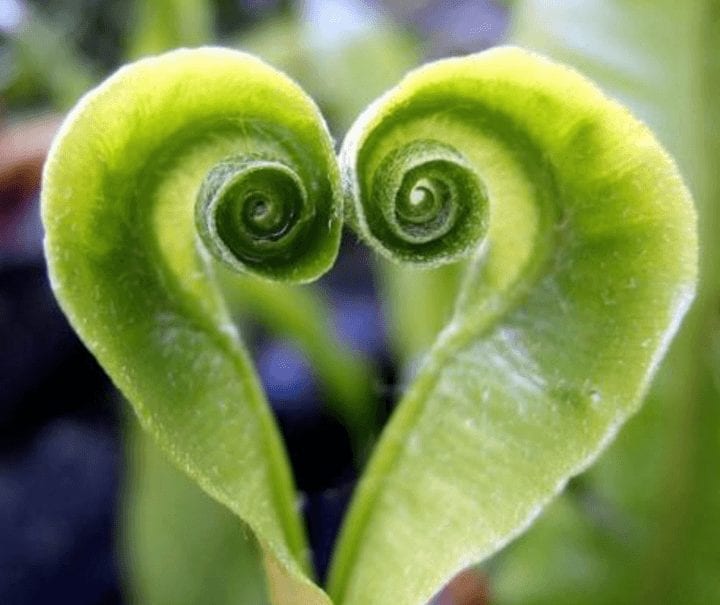
The Hearts We Carry: Poetry at Seattle Children’s Hospital
May 10, 2018
By Ann Teplick, WITS Writer-in-Residence
For seven years, through SAL’s Writers in the Schools, I have been writing poetry with children and teens at Seattle Children’s Hospital. For seven years, I’ve witnessed celebrations, indecisions, contemplations, and anguish of students and their families. For seven years, I have learned how to be mindful, how to attend to the tender moment, which leads to the next tender moment, and then to the next.
I won’t say that I don’t flood with my own grief. I continue to ask myself how can this be? So many children? Why? I am a mother, a daughter, a partner, and a woman aware of her own vulnerabilities. I have learned to sit with and honor difficult narratives. This work has enabled me to become a stronger human being.
Hearts are carried at Seattle Children’s Hospital. The hearts of the children and teens, the hearts of family members and friends of the children and teens, the hearts of each person involved in their care, and there are many. Hearts are carried by hearts that stay the course of the journey—no matter the depth or the length. Hearts are carried with heavy hearts, joyous hearts, and hearts that are hopeful.
This is how e.e.cummings carries a heart—
i carry your heart with me
i carry your heart with me(i carry it
in my heart) i am never without it(anywhere
i go you go, my dear; and whatever is done
by only me is your doing, my darling)
i fear
no fate(for you are my fate, my sweet)
i want no world(for beautiful you are my world, my true)
and it’s you are whatever a moon has always meant
and whatever a sun will always sing is you
here is the deepest secret nobody knows
(here is the root of the root and the bud of the bud
and the sky of the sky of a tree called life; which grows
higher than the soul can hope or mind can hide)
and this is the wonder that’s keeping the stars apart
i carry your heart(i carry it in my heart)
In our writing circles at Children’s, we talk a lot about empathy. The Cambridge Dictionary defines empathy as the ability to share someone else’s feelings or experiences by imagining what it would be like to be in that person’s situation. I know, for myself, it’s often difficult to take on that imagining. I share this in our circle. I also share that I cannot walk in the shoes of another, but I can walk beside them. And I will. And I will never turn away.
I often open our writing circles with the question, “How are your hearts, at this very moment?” I’m interested in the present moment, well aware that the feelings in our hearts can change from moment to moment. Here are some of the responses I’ve received—
My heart is as big as a boulder.
It’s delicate and pure, not knowing its beauty.
It’s the snow, which is cold but bright.
My heart is as energetic as electricity.
It’s as sleepy as a bear in winter.
It’s as soft as cat fur,
Yet as heavy as a wet sandbag.
My heart is a half-cut brick.
It’s a tin man that needs oil,
Every time it stops working.
It’s a hummingbird.
It’s a monarch butterfly.
My heart is a whirlwind.
In our writing circles, we contemplate quotes that focus on the heart. Rumi says “The only lasting beauty is the beauty of the heart.” Thich Nhat Hanh says “Open Mind, Open Heart.” Morihei Ueshiba says “Your heart is full of fertile seeds, waiting to sprout.” We say YES to our beautiful, open, and sprouting hearts.
In our writing circles, facts about the heart, are always in order.
Perhaps you already knew—
The heart beats 100,000 times a day, sending 2,000 gallons of blood that surges through the body.
If you were to tightly squeeze a tennis ball, that’s how hard the beating of your heart works, 24/7, to pump blood.
A standard heart valve is about the size of a half dollar.
The heart pumps blood to almost all of the body’s 75 trillion cells.
The heart has its own electrical impulse. It can beat when separated from the body, as long as it has an oxygen source.
Laughter is good medicine for the heart.
But did you know—
Every day, the heart creates enough energy to drive a truck 20 miles, which in a lifetime is like driving to the moon and back.
During an average lifetime, the heart pumps 1.5 million barrels of blood, enough to fill 200 train tank cars.
Only the corneas in our eyes receive no blood supply.
The blue whale has the largest heart that weighs over 1500 pounds.
Fairyflies have the smallest hearts.
Corals, sponges, comb jellies, and jellyfish have no hearts at all.
An octopus has three.
This is the heart fact that astounds and delights me—
Swedish researchers have found when a choir sings, their heart rhythms synchronize.
In our writing circles, we write from the heart about who we are. We know we have important things to say. We know the more we share our stories, the more we will understand one another, and open our hearts to others. Here are some (of the many) student poems I carry in my heart.
PHASES OF THE HEART
When my heart is sad,
It’s like a balloon bursting
On a sour day.
It’s like accidentally cutting yourself
With a scissor while you are doing an art project.
When it’s happy,
It’s like a delicious
Piece of dark chocolate
Melting in my mouth.
It’s like a baby eagle
Bursting out of its ivory egg
For the first time.
When my heart is angry,
It’s like a burning volcano
Waiting to erupt.
When it’s stressed
It’s like a baby that has fallen
Trying to get up.
When it’s confused,
It’s like being in a traffic jam
Not knowing which way to go.
When my heart is laughing
It’s like being around the people I love,
Spreading joy.
WHAT MY HEART KNOWS
I love to experience
The creeks and valleys
Of Boise, Idaho.
I treasure my cat Jingle
Because she has a sleepy
Cat-like personality
That makes it easier to snuggle
With her.
I long for the snowy
And super-hot Idaho
I call home.
I get scared of the thought
Of a monster of any kind
Creeping behind me
Ready to strike.
I would change the bad rules
Or laws that the government
Has created.
BEAUTY OF THE HEART
May my heart become
As powerful as a riveting ocean,
As beautiful as a new-found diamond,
As elated as a football team
Winning the Super Bowl.
May it become as peaceful
As the dew in a meadow
On a morning that’s as quiet as a pin drop.
May it become as bubbly as a giddy baby
Sharing its first laugh.
MAY YOUR HEART BECOME
A light in deep darkness that guides you
Like a candle flame in a dark room.
Let it guide you through the darkness
To your greatest hope, to get out
Of the land of sorrows.
TO HEAL A HEART
May your heart be calm
Like the sky lightning after a storm,
Like a light shining through a dark house,
Or a dolphin in a sea of sharks.
May your heart be calm
Like a warm purring kitten relaxing in deep sleep,
A cold lemonade on a hot summer’s day,
Or the first daffodil of spring.
HOPE IN MY HEART
Hope looks like a light blue sky,
Big and never-ending.
Hope sounds like ocean waves,
Relaxing and centering.
Hope smells like gorgeous flowers,
Light and soothing.
Hope tastes like a touch of sweet tea,
Warm and detoxing.
Hope feels like air in the cool morning,
Fresh and calming.
QUESTIONS FOR MY NEW HEART
Where were you, (geographically)
Before you came to me?
Will you show no rejection
To me through life?
Will you help me
Get through this biopsy,
So we can go home together?
Who did you once belong to?
IF MY HEART COULD SPEAK
If my heart could speak
I think it would say
“I’m glad to give someone
A second chance at life.
Now that I’m someone else’s heart
I can start a new journey with them
In a new place, somewhere in this world.”
At the end of each writing circle, we rub our hands together for a few seconds to generate heat, and then we place them on our hearts to warm them—a perfect heart blessing for the hearts we carry, and for the hearts of others who carry ours.

Ann is a poet, playwright, and prose writer with an MFA in creative writing from Vermont College of Fine Arts. For twenty years she’s been a Teaching Artist in Seattle public schools; Hugo House; Coyote Central; and Pongo Teen Writing, at King Co. juvenile detention and the Washington State psychiatric hospital.